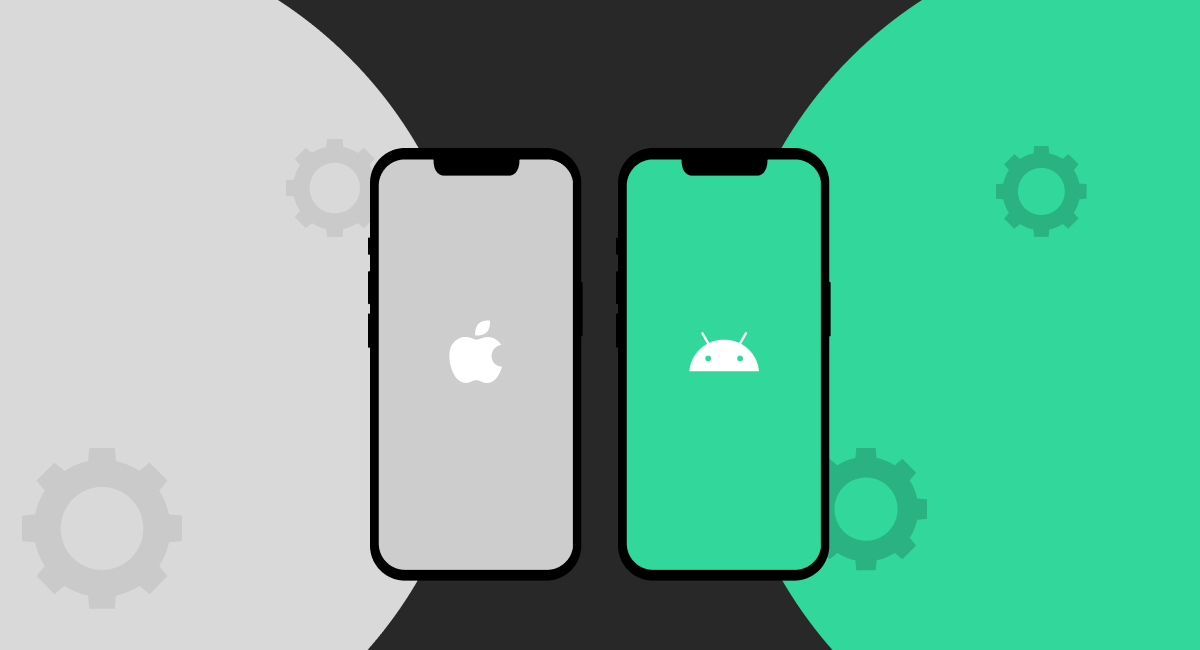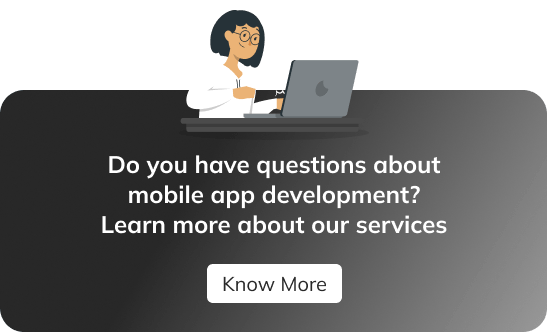iOS vs Android App Development: Essential Distinctions for Businesses

Android and iOS are two separate Operating Systems. Both, despite having architectural correspondences, still have distinct development and update techniques. They are separate from one another, not just in the procedure to assemble but also when considering user interface, features, and promotion methods. And there are disparities that affect business when choosing any one from both for investing. So here in the blog, we will study all the iOS vs. Android app development, considering all major factors.
Since extending and competitive industry and the importance of mobile apps in an individual’s lifestyle, it is taking the core position for businesses over many industries. A smart and quick approach to reaching users. Being a part of the changing habits of the people, applications are accessible to get served over any other method present or adopted in the world.
But so as to target the right audience, an entrepreneur or business has to know everything about mobile app development procedure – OS, development, design, security, personalization, and many more. So as to make a relevant decision in favor of their business. It might be too technical, but we are also going to understand in terms of the effect on the solution for business.
iOS Vs. Android App Development: Mark Key Points
Before we dive into technical differences, here is something to regard about the Android and iOS applications. About their number of users!
One of the leading OSs is Android which is widely adopted by more than 71% of the mobile OS market worldwide, and iOS accounts for around 27.6 percent. Besides, other OSs like Blackberry, Linux, Bada, Symbian, etc., are nearly not in use around the world. With this, businesses can pick one if they are targeting huge customers. But again, there are some technical terms to be clarified before deciding on any of them.
Let’s see what they are.
Timeline to Build App
Android apps are more complex than when compared with iOS. It has a lot to do with device fragmentation. Since Android has to run on multiple devices, developing an application
encounters issues with screen dimensions, resolution, working speed, and many more factors. Also, since the solution has to be compatible with multiple devices, it has to be tried and experimented with multiple processes and procedures to ensure standard compatibility with any Android device.
This makes the procedure complex to build a solution and, thus, delays the time; in comparison, It needs innumerable examinations and iterations and is a resource- and time-sparing. So for that, Android app development tools work as an escape here for the developers that permits speedup, ease, and many more advantages for the practices of constructing apps.
Similarly, iOS app development tools can lessen the complexities for engineers to prepare a solution that functions fluently.
Differences in Design
Design techniques and guidelines for both Android and iOS solutions are way different than any other terms in it. There is a lot of dissimilarity in resolution, screen dimensions, color, and much more between both types of devices, and that also concerns Android and iOS app user interface. Further, user engagement and behavior are also significant distinctions.
iOS devices are prompter than Android in responding to notifications, switching between apps, and so on. So applications have to be constructed and designed accordingly. Between both types of operating systems, there is a distinction in the navigation bar, menu button, notifications, and back button, which matter while designing the solution for both systems.
Programming Languages
There are mobile applications that offer the same services to users of Android and iOS. These are built separately with numerous coding languages. Behind Android apps, Java and Kotlin have contributed; on the other hand, Swift is utilized in building iOS apps.
While comparing both the coding languages with Swift, it is prompter to build the iOS app than Android apps. Java is adequate when one wants to assemble cross-platform applications, as it is utilized for server work and web development too. What is more, as Kotlin advances, it can construct solutions with coding script that is instinctive, contemporary, and straightforward to understand.
For both Android and iOS, there are some common frameworks like Flutter, React Native, and Unity. The environments that Android frameworks provide come with libraries, the best approach to building, and significant assistance documentation. Moreover, iOS frameworks also make the development method leisurely and integrate advanced attributes.
Cost For Development
There is no exact number of factors that would demarcate the cost of app development, whether it’s an Android app or an iOS app. It is the time, location, intricacy, development factors, hours, and many more that could be counted. Factors that are mentioned above for the iOS app development and Android app development are also dissembling the total price.
From a business point of view, investing in building iOS and Android applications is also a critical factor. And there is a need to determine whether to employ in-house resources or select firm to hire developers who can build enterprise-ready applications for Android and iOS devices, all of which have a significant impact on the price of the app.
While we compare the price for both types of apps, iOS applications may cost lesser when considered a major factor in determining the expense of the creation procedure. It is because the development process, as discussed earlier, is easier than Android.
Distribution to Users
As the Operating System are distinguishable- Google Play and App Store, there are many differences that are clearly noticeable. Android apps can be released to platforms other than Google Play, like Amazon App Store, and that is why a business can reach more users. At the same time, iOS apps are confined to be launched to the App Store only.
Furthermore, App Store has stricter laws and regulations to launch an app within and in terms of moderation. Google Play has terms and policies, yet when compared with iOS, it is less challenging for ensuring quality. Google Play is more acceptable for programmers in terms of strictness than the App Store as it bears a shorter time to authorize the release of an app and is not as stringent during examinations.
Conclusion
There is a lot more to discuss on the topic: iOS vs. Android app development, especially when it is about investment a business has to plan. However, we have covered many significant distinctions between them, which will help a business and entrepreneurs to consider the differences between both. There is then this thing called priority, like the target audience and simpler development cost, which confines the final decision to the choice between them.
We are a mobile app development company helping all business size to convert their ideas to practical applications, whether iOS apps or Android apps.



